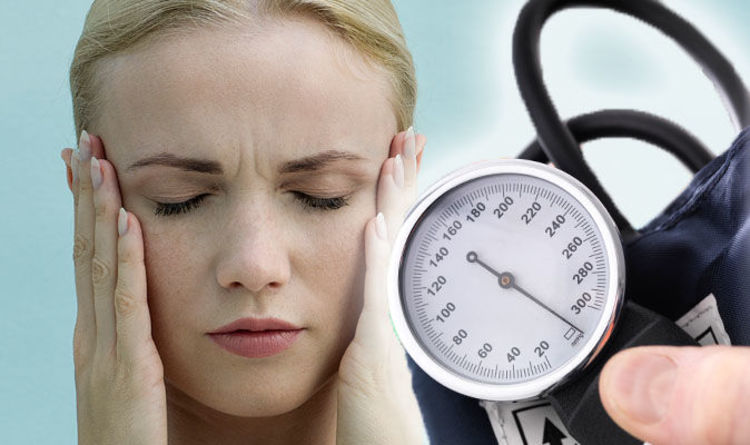Source: .express.co.uk
High blood pressure is a condition that often happens with age and a person is deemed to have high blood pressure when they have a top reading (systolic pressure) higher than 140 and a bottom reading (diastolic pressure) higher than 90. You are more at risk of developing high blood pressure if you are overweight, have a family history of high blood pressure, are a heavy drinker, or have a poor diet and do no exercise. If left untreated, high blood pressure causes damage to the heart, arteries and kidneys, which further puts you at risk of possible sudden death from a stroke and heart attack.
If you have felt a strange numbing feeling or a slight paralysis, it is a major sign of high blood pressure and should not be ignored as it could be a sign you are at risk of having a stroke.
People have described a feeling of being paralysed on one side of their body or a complete numbness. This sudden numbness is a serious medical problem and is due to the disruption of blood flow to a part of the brain due to a lack of oxygen.
Blood pressure UK and The Stroke Association recommend using the FAST test to check whether you are having a stroke:
F – Facial weakness
Check if the person is smiling or if their mouth or eyes have drooped. Has the face fallen to one side.
A – Arm weakness
Can the arms be raised and can they stay there.
S – Speech problems
Is the speech slurred, can they understand what is being said and are they speaking clearly.
T – Time
Call 999 if any of these signs are detected.
Uncontrolled high blood pressure caused damage to blood vessels to the brain by becoming more narrow.
Over time, this raises the risk of a blood vessel bursting or being blocked. If blood cannot carry energy and oxygen to part of the brain due to this blocked or burst blood vessel, some cells in the brain may be damaged or even die.
This is known as a stroke and could lead to a permanent disability or even death.
It’s imperative to measure your blood pressure consistently and be aware of the major signs and symptoms of high blood pressure which include:
- Severe headaches
- Confusion and fatigue
- Vision problems
- Chest pain
- Irregular heartbeat
- Blood in urine
- Difficulty breathing
The NHS said: “The only way of knowing whether you have high blood pressure is to have a blood pressure test.
“All adults over 40 are advised to have their blood pressure checked at least every five years and getting this done is easy and could save your life.”
